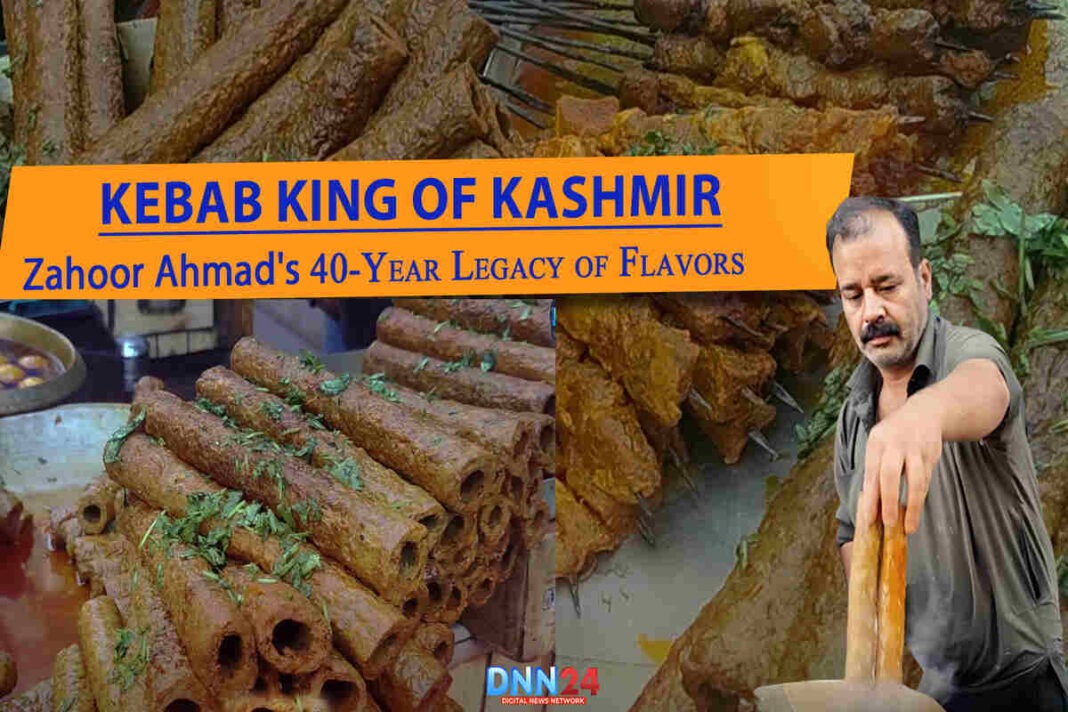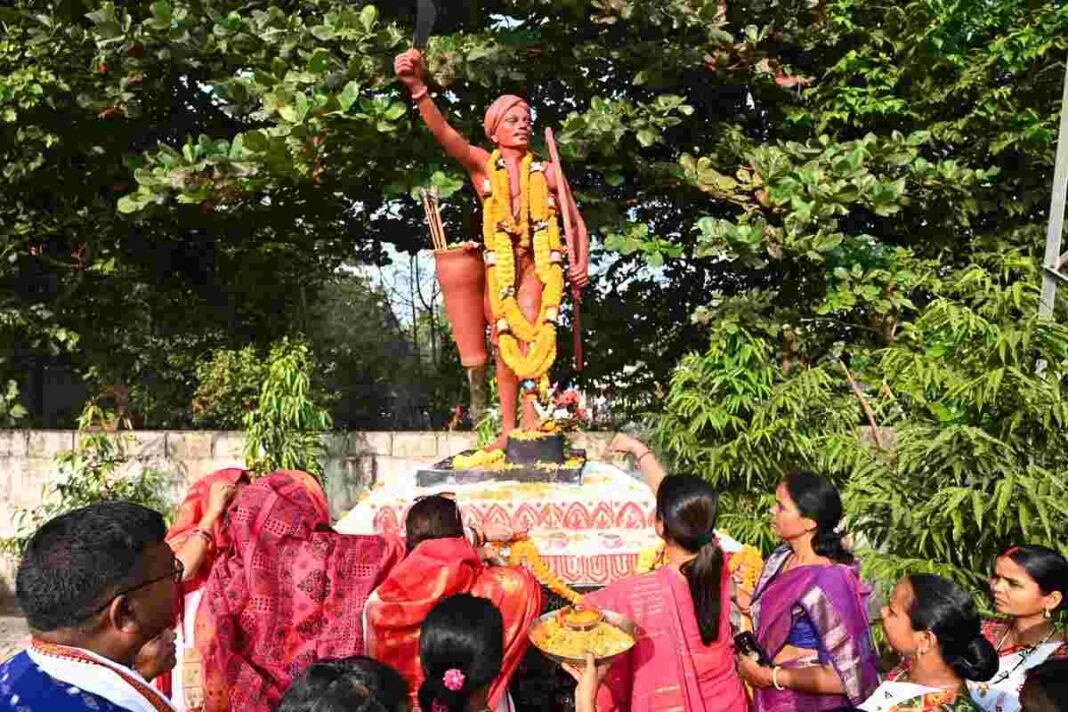Zahoor Ahmad’s story is not just about kebabs; it’s about keeping alive a 40-year-old tradition in Sopore, Kashmir. Starting his journey under his father’s guidance, he learned the ancient art of making Wazwan kebabs. In his small but famous shop, he carefully prepares the meat, mixing it with special Kashmir spices that have been part of his family’s secret recipe for generations. The magic happens when he skillfully wraps the spiced meat around skewers, a technique he has mastered over four decades. His hands move with the confidence that comes only from years of experience, and his eyes carefully watch the coal fire’s temperature, which he says is the most important part of making perfect kebabs. Every morning, he personally selects the freshest meat and spices from local markets, maintaining the quality that has made him famous.
Traditional Cooking Methods
The traditional method of cooking these kebabs involves using wooden coal and firewood, which adds a unique smoky flavor that can’t be achieved with modern cooking methods. Zahoor Ahmad insists on using only the finest quality coal, which he says burns at just the right temperature to cook the meat perfectly. The kebabs are cooked slowly over a low flame, allowing the spices to seep deep into the meat while keeping it tender and juicy. He explains that the distance between the coal and the meat must be perfect – too close and the meat burns, too far and it doesn’t cook properly. The smoke from the wood adds an extra layer of flavor that has become his signature. This traditional cooking method takes longer but results in kebabs that are crispy on the outside and succulent on the inside.
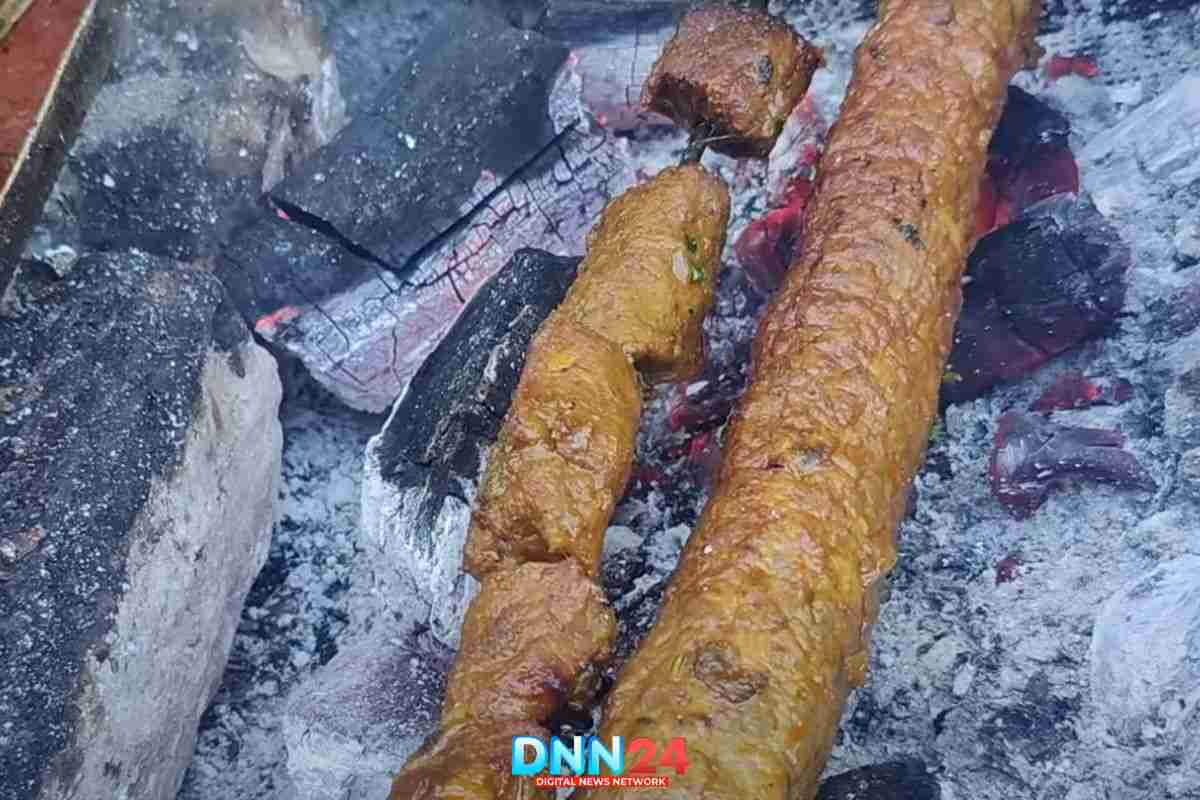
The Secret Spice Blend
The heart of Zahoor’s famous kebabs lies in his special spice mixture. Each morning, he carefully measures and grinds fresh spices including cardamom, cinnamon, cloves, and several secret ingredients that he learned from his father. The meat is marinated for hours in this spice blend, along with fresh yogurt and garlic paste. He believes that each spice must be added in exact proportions to create the perfect balance of flavors. Even after 40 years, he personally oversees the spice mixing process and never delegates this crucial task to anyone else. The aroma of these freshly ground spices fills the entire street, drawing customers from far and wide. His spice blend is so unique that many have tried to replicate it, but none have succeeded.
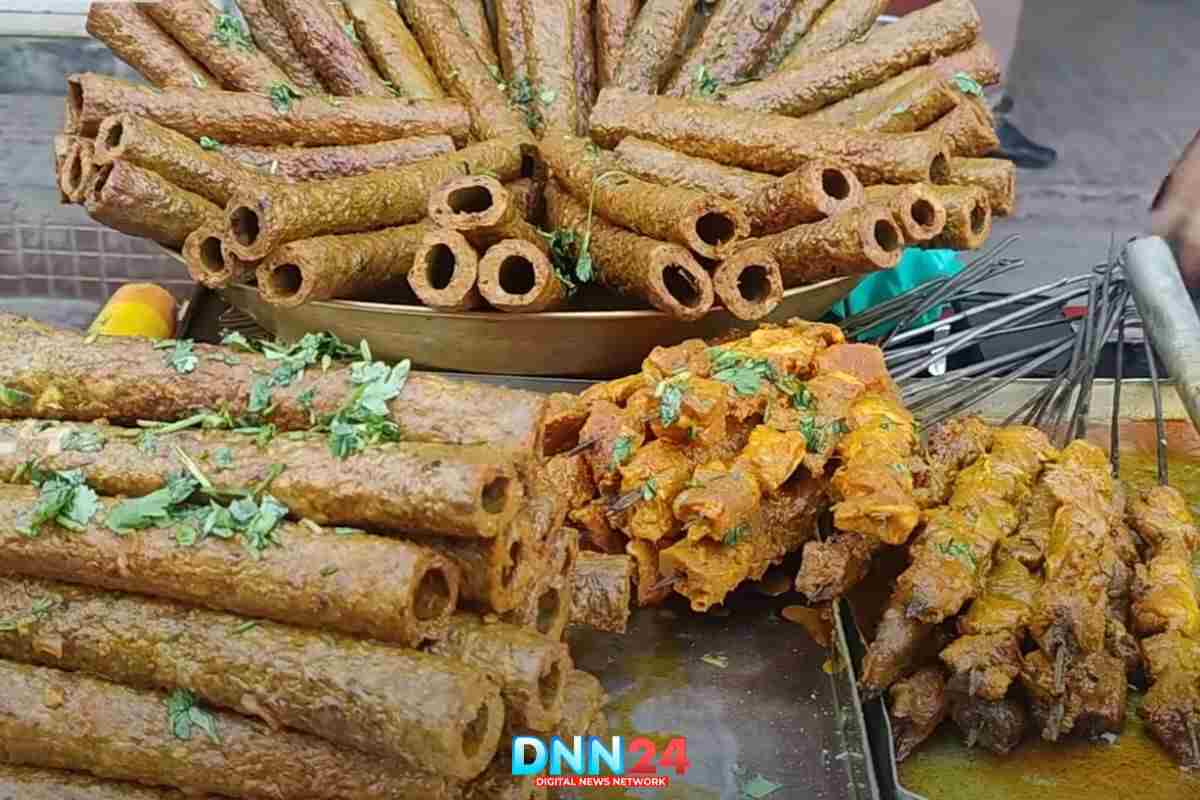
A Cultural Icon
In the heart of Sopore, Zahoor Ahmad’s kebab shop has become more than just a food establishment – it’s a cultural landmark. People from all walks of life gather here, sharing stories and creating memories over plates of his famous kebabs. During festivals and weddings, his kebabs are in such high demand that orders must be placed days in advance. Local families have been coming to his shop for generations, and many say that no celebration is complete without Zahoor’s kebabs. He has become a living legend in the community, known not just for his cooking skills but also for his warm personality and the way he treats every customer like family.
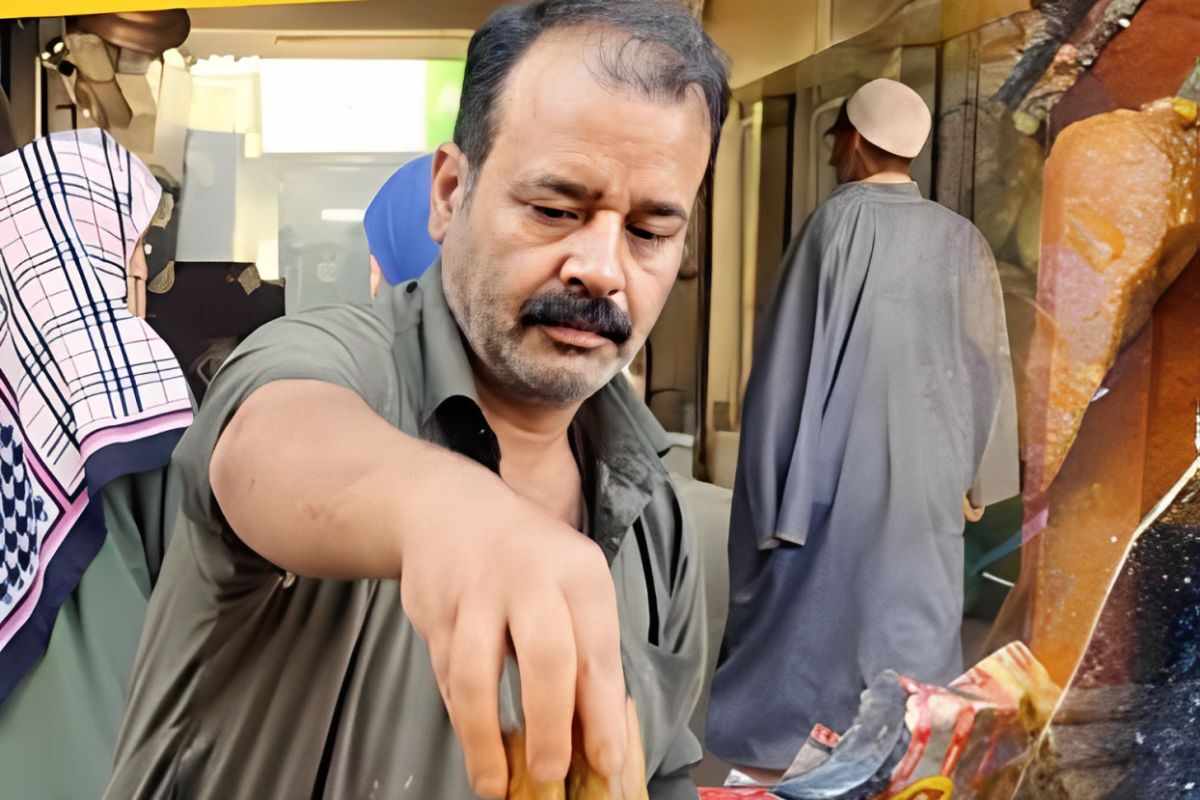
Preserving Kashmiri Heritage
Through his craft, Zahoor Ahmad is preserving an important part of Kashmir’s rich culinary heritage. His cooking methods and recipes represent centuries-old traditions that were passed down through generations of Kashmiri cooks. In a world of fast food and modern cooking techniques, he stands firm in maintaining traditional methods. He often shares stories about Kashmir’s food history with young customers, explaining how these cooking techniques have survived through generations. His dedication to authenticity has made his shop a must-visit place for food enthusiasts and tourists who want to experience genuine Kashmiri flavors. He sees himself not just as a cook, but as a guardian of Kashmir’s culinary traditions.
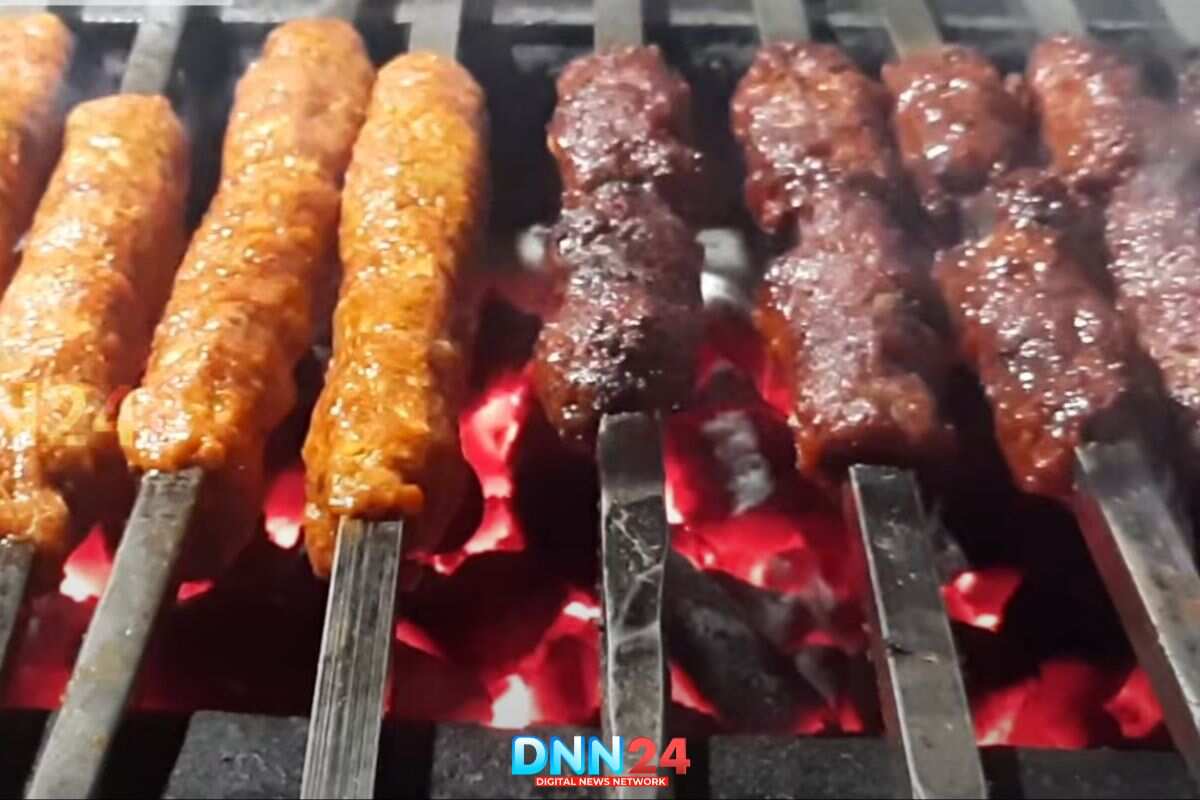
Global Recognition and Legacy
Over the years, Zahoor Ahmad’s fame has spread beyond Kashmir, attracting food lovers from across India and even internationally. Food critics and travel writers have featured his kebabs in numerous articles and documentaries. Despite his success, he remains humble and continues to work with the same passion and dedication as when he first started. His biggest concern now is passing on his knowledge to the next generation. His son is learning the trade, ensuring that these traditional recipes and techniques will continue to delight food lovers for years to come. Zahoor believes that good food brings people together and hopes his legacy will continue to serve as a bridge between different cultures and communities.
Also Read: Building Hope: The Story of Semchan Welfare Society in Leh
You can connect with DNN24 on Facebook, Twitter, and Instagram and subscribe to our YouTube channel.

